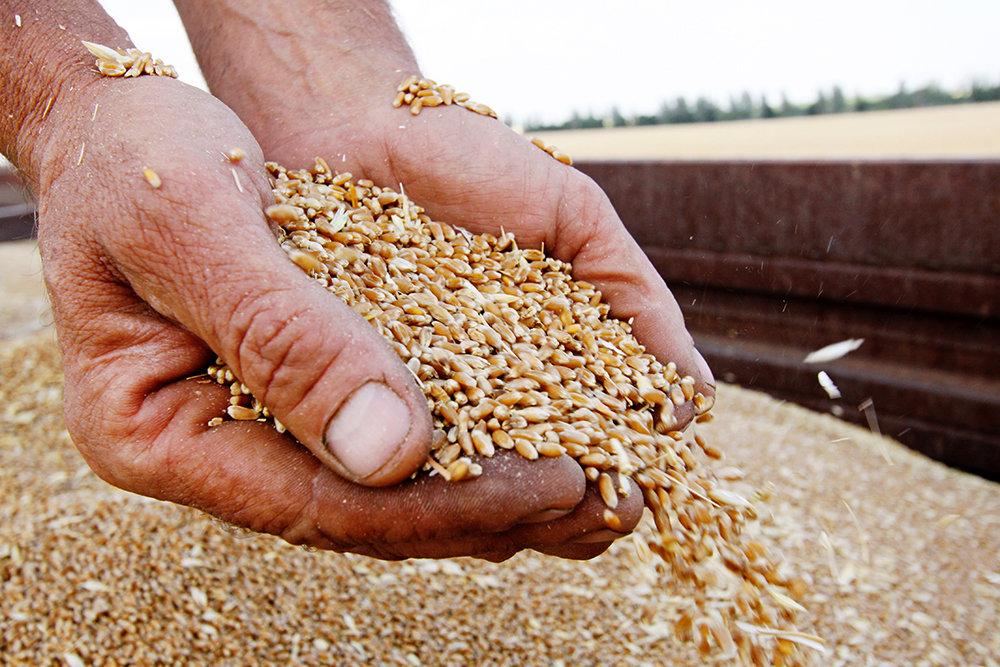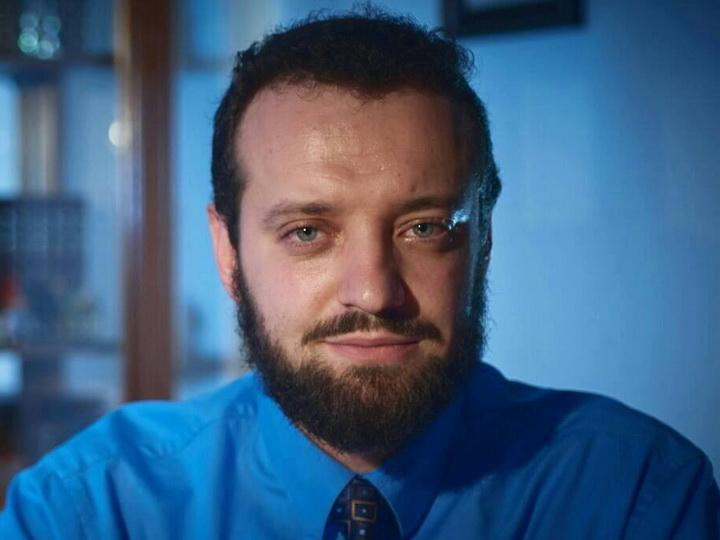"Azerbaijan and Israel have secured themselves against famine threat" Israeli expert Mikhail Finkel for Caliber.Az
Azerbaijan is making a balanced policy all the way around, finding common ground and economic cooperation with different states. One of the most pressing problems of our time is food security, and Azerbaijan has found ways to ensure it together with its partner in the Middle East.
Israeli Ambassador to Azerbaijan George Deek told Azerbaijani media that agriculture has recently become one of the main priorities of cooperation between Azerbaijan and Israel, and "we will soon witness the completion of the grain storage project."
Israel, the diplomat added, intends to implement several projects on dairy farms and orchid cultivation together with Azerbaijan.
"Some projects were implemented following the Azerbaijani-Israeli business forum held in Baku on May 18. We have also opened demonstration farms in the cities of Ganja and Guba. A new farm will open near Baku soon," Deek stressed.
At the same time, he said that his state has already expressed its readiness to assist Azerbaijan in reconstruction work in the liberated territories and that Israel is interested in more active participation in agricultural projects in Karabakh.
Words of the Israeli ambassador give reason to make sure that the factor of cooperation between our country and Israel is another unique vector of Azerbaijani foreign policy, which thoroughly strengthens the foundation of its economy and allows it to keep in line with the diversification strategy. While the cooperation with Türkiye, Russia, and the EU is its leading axes, Israel, as a special ally, helps to provide the rear.
In this sense, its experience as one of the most technologically advanced states in the world can be extremely useful to our country. It is noteworthy that Israel itself is located in a completely different region of Eurasia, due to a distinct geographical and climatic environment – that is, with its own special approach to the formation of an economic model and geopolitics. But at the same time, Azerbaijan and Israel have a lot in common: Azerbaijan has a unique and isolated position similar to Israel in its geography and geopolitics.

A delegation headed by the Israeli Minister of Agriculture and Rural Development Oded Forer visited Azerbaijan in May of this year. During the meetings, the sides exchanged views on the application of modern Israeli technologies in agriculture in Azerbaijan. At the same time, an Azerbaijani-Israeli business forum with the participation of companies from the two countries was held in Baku.
Israeli newspaper Israel Hayom notes that the purpose of the Israeli leadership is not only to help Azerbaijan to eliminate dependence on imported grain but create the possibility of its future export. Israel will provide the country with technology for the cultivation of crops so that in two or three years, it will be possible to import products from local farms. The newspaper notes that although Israel grows a small amount of wheat, it has extensive knowledge of methods of its cultivation, especially in difficult climatic conditions.
In this sense, the economic policy of Armenia, neighboring Azerbaijan, looks poor and unpromising, including in terms of food security. Armenia is now entirely dependent on grain imports from Russia, without being able to somehow prolong the current prices on favorable terms. Not to mention the fact that the route of grain from Russia is long and difficult, with frequent force majeure circumstances, as it happens at the mountain checkpoint at Upper Lars in frosty winters and during spring rains.
Watching Azerbaijan's successful food security strategy now, even the most ardent supporters of the Armenian policy of radicalism and self-isolation can certainly see the disadvantages of the so-called "special Armenian way," which is full of deadlocks on the borders with its neighbors.
Quite recently, about a year ago, all the detractors of the Azerbaijani-Israeli relations said that those relations could be reduced to just two factors: the sale by Azerbaijan of its oil to Israel and the sale by Israel of its military technology and military equipment to Azerbaijan. And now we see how false and empty that thesis turned out to be.
Israeli international expert Rabbi Mikhail Finkel expressed the due idea in his conversation with Caliber.Az, adding that now there is an entirely new vector of Azerbaijani-Israeli cooperation - agriculture.

"Amid the military confrontation in Ukraine, there are still high risks of food security in the world, in particular problems with grain. It is very difficult to get Ukrainian grain on the markets, and Russia, despite the high yields, experiencing big problems with the way to buy this grain and how to pay for it due to the imposed sanctions.
Therefore, according to Finkel, Azerbaijan and Israel have decided to create a joint program on grain crops with the maximum use of land. To create a so-called "grain bank" with the help of fertile Azerbaijani land and labor plus Israeli know-how.
Israel is one of the global leaders in agriculture, the expert stressed.
"Azerbaijan and Israel decided not to depend on anyone - neither on Russia, nor on Ukraine, nor on such wheat breadbaskets as the United States and Canada. This is very wise. Because a country that does not depend on anyone in this matter provides for itself and saves its people from the threat of world famine. This is a wonderful project, which the leaders of Azerbaijan and Israel have agreed on, and whose fruits will be reaped by the peoples of our countries for the foreseeable future," Finkel believes.
Armenia, in his words, is left out of all these processes, being an outsider. By betting on Iran, Armenia shuts off all cooperation opportunities with Israel.
Israel has staked its cooperation in the South Caucasus region on Azerbaijan, the political scientist stressed.
"I cannot fail to mention the tremendously improved cooperation between Israel and Türkiye. A number of visits took place: the visit of the president of Israel to Türkiye and the visits of the Turkish foreign minister to Israel. There is such a great thaw in relations," the political analyst added.
Finkel said he does not see Armenia here in any way. Armenia, in his opinion, has closed the book.
"We see more and more ethnic Armenians asking for Azerbaijani citizenship, for permission to live in Azerbaijan. That is, even ordinary Armenians see that Yerevan policy is a deadlock and cannot bring prosperity to the Armenian people," concluded the Israeli political analyst.








